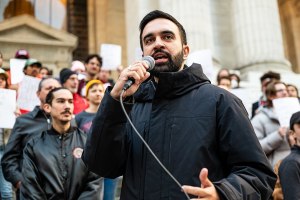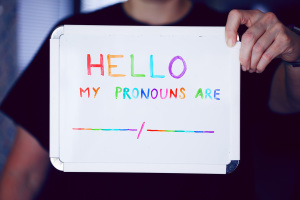Presbyterians Petition to Assure Property Rights for Breakaways
More than 900 Presbyterians have signed a petition supporting property rights for local churches within the Presbyterian Church (U.S.A.), particularly for those leaving the denomination.
As more churches choose to disaffiliate from the PC(USA) over the denomination's liberal direction on Scripture and theology, local churches want assurance that they can keep their property.
"As a Biblically faithful Presbyterian, I feel it is critical that all congregations within the Presbyterian Church (USA) understand their rights to their church property," reads the petition, according to The Layman Online, a conservative Presbyterian publication. "The Louisville leadership has indicated their willingness to seize property from congregations that demand loyalty to Jesus Christ and His Word, and it is only fair that all congregations be informed that they do not automatically lose their property when they choose a different denomination.
"Therefore, I petition you, as a Commissioner of the General Assembly, to support [proposals] which will ensure every congregation is guaranteed its property rights – property that faithful people have given their funds to purchase, maintain and want to use to worship our Lord and disciple others."
The petition, signed by subscribers of The Layman, will be sent to commissioners of PC(USA)'s 218th General Assembly, the highest governing body of the denomination, which is convening in June in San Jose, Calif.
Charles F. Burge, executive director of the Presbyterian Lay Committee, says the signers represent the "outcry" he's heard from the laity who are outraged over "legal maneuverings by the denominational hierarchy."
"They simply want to assure that the facilities that have been bought and paid for by themselves and others in their congregation are retained for the use of the local congregation and for the advancement of Biblical authority, the lordship of Christ, and the gospel as rediscovered by the Reformation," Burge told The Layman.
The effort by conservative Presbyterians to secure church properties comes after the PC(USA) joined a legal battle between The Episcopal Church and 11 Virginia churches that broke from the denomination in 2006.
Last month, the breakaway Episcopal congregations won the first round in the property battle when the Fairfax County Circuit Court ruled that the local churches could pursue their case to obtain property under Virginia's "division statute," which grants property to departing congregations when there is division within the denomination.
In a friend-of-the-court brief, PC(USA) head Clifton Kirkpatrick and 15 other religious groups, including the United Methodist Church, are backing The Episcopal Church in contending that the state's "division statute" is unconstitutional and that it threatens all hierarchical churches of their constitutional rights to structure their polity free from governmental interference.
Lloyd Lunceford, an attorney in Baton Rouge, La., and an elder of First Presbyterian Church of Baton Rouge, explained that the PC(USA)'s argument is that "any state statute does not defer to whatever property decision is made internally by PCUSA authorities – whether it's the presbytery, synod or whatever – is an unconstitutional abridgment of that ecclesiastical body's right to organize itself internally as it pleases."
"It violates their religious freedom," he said, according to The Layman.
"On the other hand," Lunceford added, "the local churches are arguing that a statute that allows a local congregation to determine property ownership protects the religious freedom of the local majorities, and to ignore such a statute, and to instead as a matter of state law automatically defer to whatever decisions made by presbytery or diocese, represents an unconstitutional state establishment of that hierarchy's religion. It puts the power of the state behind the decision of an ecclesiastical body, and you can't do that in America."
Although just a local case in Virginia, Lunceford said the court case can affect other religious bodies across the country.
"These hierarchical denominations realize that a lot is at stake, and so they're putting up a fight and waving the flag," Lunceford said. "So those northern Virginia cases really have a national significance."
As of May 20, 934 signatures have been collected by The Layman and more continue to come.



























